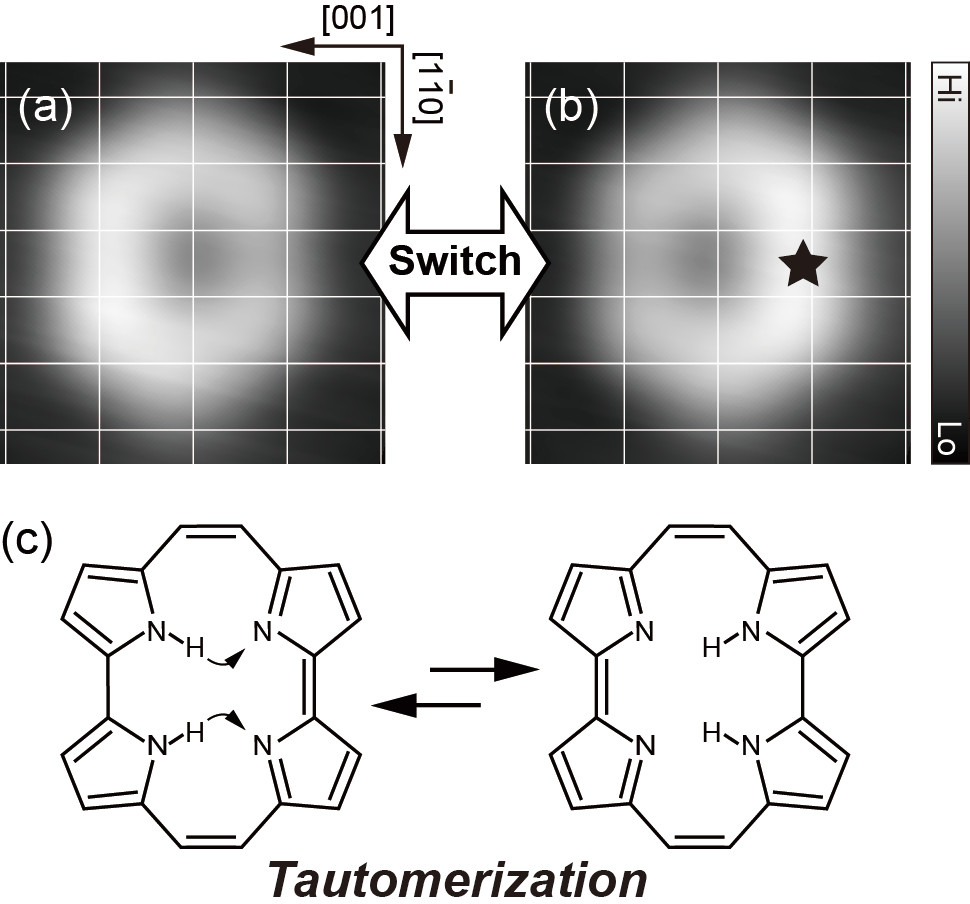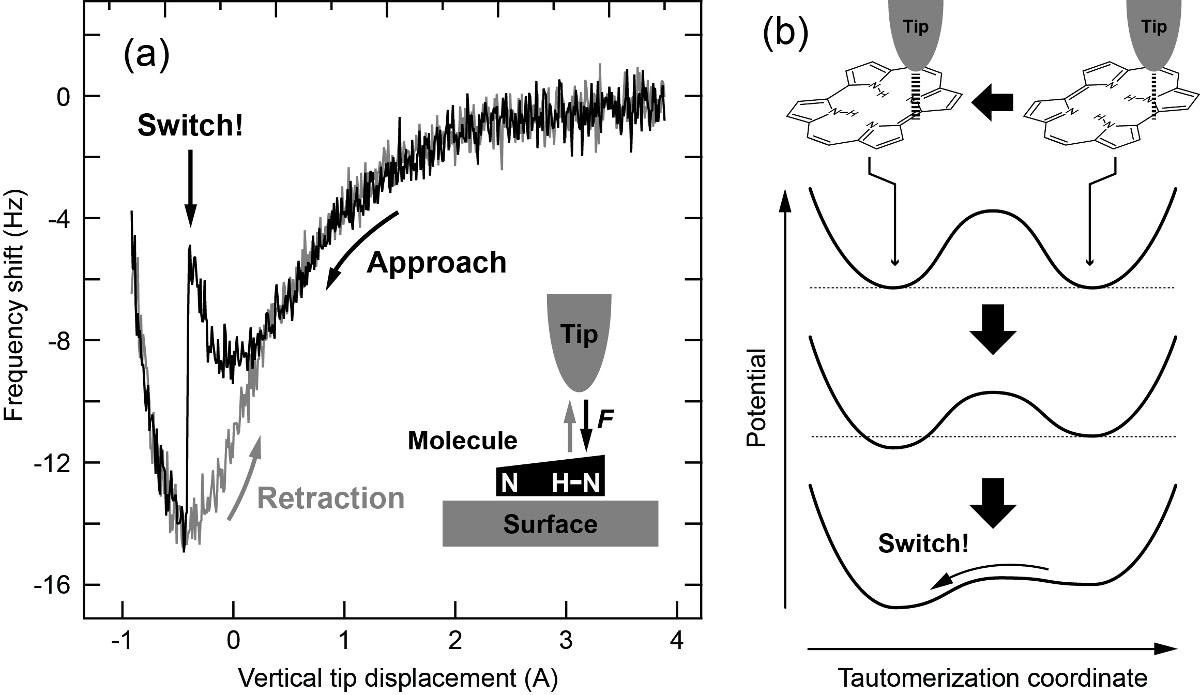




| 09:00-10:40 | Th1: Adsorbate and interface dynamics |
| 10:40-11:20 | Coffee break |
| 11:20-13:00 | Th2: STM-IETS and beyond |
| 13:00-15:30 | Lunch break (on your own) |
| 15:30-16:40 | Th3: Molecular films and 2D materials |
| 16:40-17:20 | Coffee break |
| 17:20-19:00 | Th4: Tip-enhanced vibrational spectroscopies |
| 20:30-23:00 | Conference dinner at Cofradía Vasca de Gastronomía, Old Town |
Chair: P. Jelínek, Prague, Czech Republic
Contributed talk
Local impact on intramolecular H-atom transfer studied by STM and nc-AFM
1Department of Physical Chemistry, Fritz-Haber Institute of the Max-Planck Society, Germany
2Institute of Physical Chemistry, Polish Academy of Sciences, Poland
Intramolecular H-atom transfer (tautomerization) is an important process in chemistry and biology, which is also regarded as a test bed to study H-bond dynamics. More recently, tautomerization has gained more attention in nanoscale science and technology because it resembles a molecular switch. For applications of molecule-based devices, it is of fundamental importance to understand the molecular process at the single molecule level because the local surroundings of a molecule have a significant impact on the process in condensed phases. We have studied H-bond dynamics within model systems on a metal surface using low-temperature scanning tunneling microscopy (LT-STM), which provided a microscopic insight into the dynamics including quantum effect such as tunneling and zero-point energy [1,2].
We will present the study of tautomerization within a single porphycene molecule on Cu(110) (Fig. 1) using a combination of LT-STM and non-contact atomic force microscopy (nc-AFM). Tautomerization is induced by vibrational excitation via inelastic electron tunneling in the STM, and its behavior can be precisely controlled by changing the surroundings of a molecule in a controlled manner [3]; i.e., either by placing Cu adatoms close to a single molecule, or by flipping a molecular orientation in a neighboring molecule in one-dimensional oligomers of porphycene. To obtain a better understanding of the perturbation to tautomerization, the tip-molecule interaction was investigated during the process by using force spectroscopy with nc-AFM (Fig. 2). The force curve was measured during the approaching (black curve) over the inner H atoms (indicated by the black star in Fig. 1b), and tautomerization occurs when the interaction becomes repulsive (indicated by the arrow). The curve during the retraction (gray curve) shows a different interaction because the tip interacts with N atoms after switching. These results provide a novel microscopic insight into impact from the local surroundings, leading to accurate control of molecular processes.

Fig. 1 (a)-(b) STM image of a single porphycene molecule on Cu(110) at 5 K. The switching corresponds to the cis-cis tautomerization.

Fig. 2 (a) Force curve during the tip approach (black) and retraction (gray). (b) Schematics of tip-induced tautomerization process through the potential distortion.
[1] T. Kumagai et al. Phys. Rev. Lett. 100, 166101 (2008).; T. Kumagai et al. Nature Materials 11, 167 (2012)
[2] T. Kumagai, "Visualization of Hydrogen-Bond Dynamics", Springer (2012).; T. Kumagai, Prog. Surf. Sci. 90, 239 (2015)
[3] T. Kumagai et al. Phys. Rev. Lett. 111, 246101 (2013).; T. Kumagai et al. Nature Chemistry 6, 41 (2014)